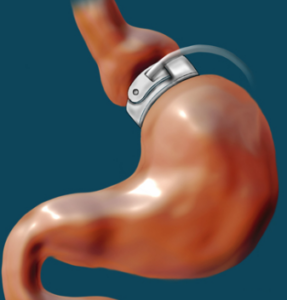 In the ever-evolving battle with obesity, where diets often fail and surgeries are invasive, risky, and frequently ineffective, Virtual Gastric Hypnotherapy (VGH) is carving a new path. This groundbreaking approach harnesses the mind-body connection to simulate the positive effects of real-life surgery—without any of the risks.
In the ever-evolving battle with obesity, where diets often fail and surgeries are invasive, risky, and frequently ineffective, Virtual Gastric Hypnotherapy (VGH) is carving a new path. This groundbreaking approach harnesses the mind-body connection to simulate the positive effects of real-life surgery—without any of the risks.
What sets VGH apart is not just its non-invasive nature but its ability to empower individuals to redefine their relationship with food and nutrition. This article explores how this innovative technique works, why it’s gaining popularity, and what to expect on this transformative journey.
Science Behind VGH
At its core, VGH taps into the creativity of the subconscious mind, which governs habits, patterns, values, beliefs, and automatic responses. The subconscious doesn’t distinguish between vivid thoughts and reality, making it uniquely receptive to healthy suggestions. Hypnotherapists leverage this by planting suggestions that the subconscious accepts as truth.
In VGH, the suggestion is simple yet profound: a gastric band has been fitted around the stomach. This imagined band effectively reduces the stomach’s capacity, making clients feel full faster and with smaller portions. Unlike surgery, VGH avoids risks, recovery downtime, and physical side effects. Instead, it uses vivid imagery to inspire sustainable behavioral changes.
What to Expect
- Assessment and goal setting: The journey begins with understanding the client’s relationship with food. A certified hypnotherapist explores eating habits, emotional triggers, and weight loss goals to create a personalized plan. Whether addressing stress eating, portion control, or sugar cravings, the process is tailored to individual needs.
- Induction and relaxation: The practitioner guides the client into a state of deep meditative relaxation, where the mind becomes highly receptive to positive suggestions.
 Contrary to myths, hypnotherapy doesn’t mean losing control, it’s about regaining control from within.
Contrary to myths, hypnotherapy doesn’t mean losing control, it’s about regaining control from within. - Guided imagery and virtual surgery: Clients are led through a vivid visualization of gastric band surgery, including arriving at the hospital, meeting the surgeon, and feeling the band being placed. For some, the experience feels remarkably real, though individual responses may vary.
- Post-surgery programming: After the imagined surgery, suggestions reinforce healthier habits, such as drinking water before meals, eating slowly, and stopping when comfortably satisfied. These cues help clients instinctively regulate their eating, fostering long-term change.
- Reinforcement: Clients are provided with digital recordings to reinforce positive changes at home. Weight loss is a journey, and repetition helps solidify newly preferred patterns, supporting lasting success.
Psychological Power of VGH
Unlike diets that rely on willpower, VGH operates on a subconscious level, rewriting deep-seated patterns around food. Emotional eating which is often triggered by stress, boredom, or past conditioning, is a significant barrier to weight loss. VGH addresses these triggers, fostering a calmer, more mindful approach to eating.
A key benefit of VGH is self-empowerment. Traditional diets often impose restrictive external rules, while VGH encourages clients to trust their instincts and listen to their bodies. This makes weight loss feel natural and sustainable.
 Why VGH Is Gaining Popularity
Why VGH Is Gaining Popularity
- Non-Invasive and risk-free: Unlike surgery, VGH involves no anesthesia, incisions, or post-operative risks. It’s entirely safe and suitable for most people.
- Cost-effective: Gastric band surgery can cost tens of thousands of dollars, while VGH is far more affordable and accessible.
- Holistic benefits: Beyond weight loss, clients report better sleep, reduced stress, and increased self-confidence. The relaxation during sessions also alleviates anxiety, improving overall well-being.
- No rebound effect: Many diets result in yo-yo weight changes when restrictions are lifted. VGH promotes sustainable lifestyle habits, reducing the risk of relapse.
Limitations of VGH
While VGH is highly effective, it’s not a magic solution. Success depends on the client’s commitment to adopting healthier habits and consistently using home reinforcement sessions. Results also vary based on factors like metabolism, stress levels, and underlying health conditions.
Also, choosing a qualified hypnotherapist is essential. Look for certifications from reputable organizations and read reviews to ensure you’re working with a skilled practitioner.
Future of Weight Loss
As obesity rates rise globally, innovative and sustainable solutions like VGH are becoming increasingly important. This method offers a glimpse into the future of weight management, where the mind becomes the most powerful tool for achieving a healthier body.
VGH goes beyond physical weight loss, addressing the psychological and emotional roots of overeating. By fostering lasting change, VGH represents a paradigm shift in how we approach weight management.
Is VGH Right for You?
If you’re tired of diets that fail and wary of invasive procedures, Virtual Gastric Hypnotherapy could be the solution you’ve been searching for. It’s safe, affordable, and holistic, offering more than just weight loss. It’s a journey toward greater self-awareness and empowerment.
Whether you aim to shed a few pounds or completely transform your relationship with food, VGH presents a compelling option. With the guidance of a skilled hypnotherapist and an open mind, you can take the first step toward a lighter, healthier you, one suggestion at a time.
by: Paul Gustafson








